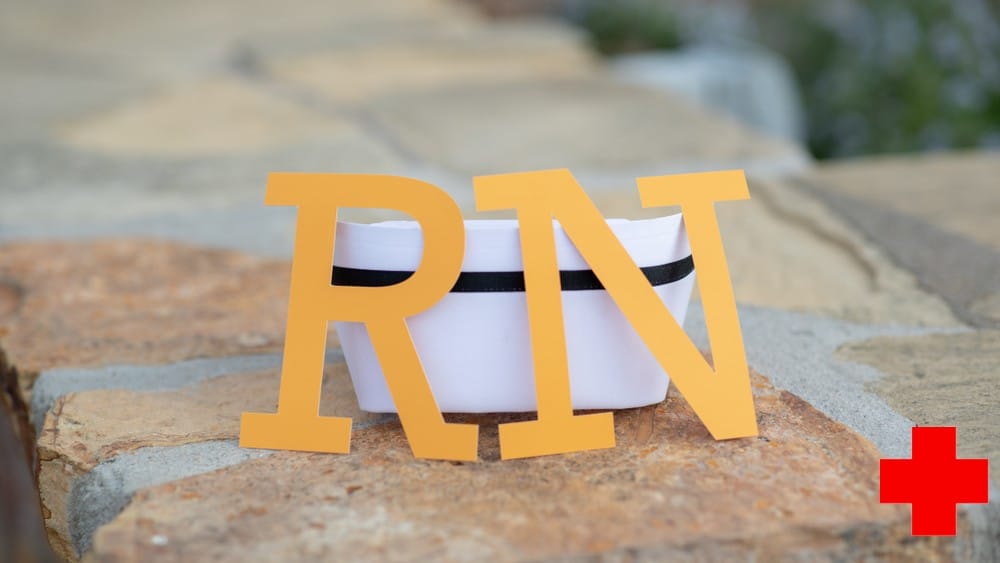Hello, there reader!
Welcome to this informative article about the Neuroscience Nurse career.
By the time you are done reading this article, you will understand what a Neuroscience Nurse is, how to become one, their salary, and job outlook, and then decide whether this Nurse Specialty is the right fit for you.
We will cover the following in this article:
- Who is a Neuroscience Nurse?
- Becoming a Certified Neuroscience Registered Nurse(CNRN)
- Neuroscience Nurse Salary and Job Outlook
Let’s read more about it right away!
Introduction

Neuroscience also famously called Neural Science is an area of medicine whose focus is mainly on the nervous system which includes the brain and the spinal cord.
The medical professionals in this field such as Neuroscience Nurses have trained and are equipped to understand and treat illnesses and injuries affecting the nervous system.
Who is a Neuroscience Nurse?

A Neuroscience Nurse is a nurse who provides care to patients with neurological disorders and injuries.
Patients suffering from spinal trauma caused by accidents, Alzheimer’s, Parkinson’s disease, epilepsy, meningitis, encephalitis, and multiple sclerosis are often attended to by a Neuroscience Nurse.
Also, patients who are experiencing strokes and congenital disabilities are cared for by a Neuroscience Nurse.
The Neuroscience Nurse must have a deep understanding of the workings of the nervous system and how the mind and body are affected.
Most of the patients facing neurological disorders or injuries are known to act unpredictably.
Neuroscience Nurses are therefore required to be tolerant, compassionate, strong, patient, and do their best to help these patients with chronic or long-term disabilities manage their conditions.
The nervous system happens to be one of the most important and very complex systems in the human body because it plays an important part in every function of the body including thoughts, movements, and sensations.
The problems arise because the nervous system has experienced an injury or illness of some sort.
The Neuroscience nursing field is one of the most complex specialties to master.
If you want to be a Neuroscience Nurse, then you must be well-versed in how the nervous system works and its effect on the rest of the body.
You must also have a firm grasp of how Neuroscience equipment is used as part of modern technological advances.
The Duties of a Neuroscience Nurse
The Neuroscience Nurse handles various aspects of patient care that include the assessment, diagnosing, and treatment of patients.
Most Neuroscience Nurses are usually a part of the neurological unit in a healthcare setting.
Certified Neuroscience Nurses will find jobs in Neuroscience Specialists’ offices, in hospitals in departments such as operating rooms and brain injury units, intensive care, pediatric nursing units, stroke units, and clinical education.
They might also work in rehabilitation facilities and home care agencies, outpatient clinics, and senior care facilities.
A Neuroscience Nurse performs the following duties:
- Conducting physical assessments and neurological exams
- Physical rehabilitation
- Surgical/Wound care
- Daily living assistance
- Reading and interpreting the results of CT scans and MRIs
- Administering medication
- Assisting during surgery
- Collaborating with the healthcare team to carry out certain medical interventions
- Offering comfort to patients and their families
- Create detailed documentation about the patients’ medical records
Becoming a Certified Neuroscience Registered Nurse(CNRN)
So, do you think becoming a Neuroscience Nurse is what you would love to do? Well there is a process involved and it is as follows:
- First, earn your BSN: It is now evident that this Bachelor of Science in nursing is the education standard for all forms of Registered Nurses and it offers increased opportunities for employment
This is a degree that takes four years to complete.
- Become The Registered Nurse(RN): After earning your Bachelor’s degree in nursing you must pass the NCLEX-RN examination for you to become a Registered Nurse because it is the only way for you to qualify for jobs in neurological treatment and care
- Focus On Neurological Nursing: You could begin by doing volunteer work in a neurological unit at a hospital or a specialized healthcare facility
This will enable you to earn that valuable experience through first-hand exposure to the world of neuroscience nursing.
This could also be an opportunity for you to showcase your commitment and passion to continue education and patient care.
There is no doubt that you will stand out from the other candidates should you decide that a neuroscience nursing career is where your passion lies and you truly want to become one.
- Earn the Neurological Registered Nurse Certification: The next step is earning the CNRN( Certified Neurological Registered Nurse) certification
For you to achieve a Neuroscience Nurse certification you must take the CNRN exam and pass it.
This exam requires you to have attained at least one year of Neurological nursing experience as a Registered Nurse.
To prepare for the CNRN exam check with The American Board of Neuroscience Nursing for the ideal resources to help you ready yourself for this exam and aid in your progress in your Neuroscience studies.
- Do The Recertification To Keep Your Career Prospects Bright: You might have to renew not only your nursing license but your CNRN certification as well regularly to advance your career
You can even decide to take it one step further and decide to pursue a Master of Science in Nursing (MSN) degree to improve your career prospects by qualifying for more opportunities such as Nurse Practitioner or Nurse Educator which will enable you to help new nurses improve their future careers in patient care.
Note that two Neuro Nurse certifications provided by the American Board of Neuroscience Nursing(ABNN) exist and they are:
- The Certified Neuroscience Registered Nurse(CNRN)
- The Stroke Certified Registered Nurse (SCRN)
Both of these certifications require candidates to take an examination whose fees vary with membership.
The examination fees for non-members of the American Association of Neuroscience Nurses is $400 but if you are a member it will cost you $300 and an additional charge of $25 will be added if you happen to be paying via check, whether you are a member or non-member.
Neuroscience Nurse Salary and Job Outlook

Neuroscience nursing might be challenging but quite satisfying thanks to the attractive Neuro Nurse salary and overall job satisfaction.
According to the Bureau of Labor Statistics, the average Neuro RN salary is from $71,000 to $125,714 and around $38.47 hourly depending on their role, state, the city where they are employed and any additional certifications acquired.
If you have a BSN then your salary will of course be higher than the candidate with an associate’s degree.
With the rapid evolution of medical technology to meet the needs of patients, Neuroscience Nurses are in demand because the care of patients undergoing treatment and medical procedures for neurological issues is required.
Generally, the nursing field has increased in demand which is expected to continue rising all the way to 2030 and beyond.
With an increasingly aging population, the neurological issues that come with age have been on the increase.
As a Clinical Nurse commit yourself to the continuing education requirements of Neuroscience nursing because the job security in the neurological field is bright and positive making this specialty with pursuing.
Conclusion

We have looked at who Neuroscience Nurse is, their role in various healthcare settings, how to become a Neuro Nurse, and the salary and promising job outlook of this nurse specialty.
It is no doubt a promising career and if you have a passion for it, pursuing it and meeting all the CNRN requirements to become a Neuroscience Nurse should be your next step.
FAQs

What is a Neuroscience Nurse?
This is a nurse who has specialized in the care of patients suffering from brain and nervous system problems such as spinal cord injury, Alzheimer’s, Parkinson’s disease, epilepsy, and multiple sclerosis. Some might refer to this kind of nurse as a Neuro Nurse or a Brain Nurse.
How long does it take to be a Neuroscience Nurse?
You can decide to take two years of full-time( 4160hours) of practice as a Care Nurse for stroke patients along with 50 hours of continuing education. You could also choose to do two years of part-time(2500hours) of practice as a Care Nurse and 100 hours of continuing education.
How much do Neuro Nurses make?
According to various recruitment sites, the annual salaries go as high as $166,000 and as low as $23,000. Most Neurology Nurse salaries according to the BLS are between $79,500 and $125,000 with the top earners in the field making $150,000 yearly countrywide.
What degree do you need to be a Neuroscience Nurse?
First, you must earn an RN license which to gain you must have enrolled and completed an approved nursing degree program. This could be different from state to state with some states only approving candidates with a bachelor’s degree while others take in candidates with an associate’s education level.
What does a Neuroscience Nurse do?
This nurse provides care for patients experiencing brain and nervous system problems like strokes, Alzheimer’s, brain injuries, and other conditions to recover well or learn to manage their situation. The Neuroscience Nurse must be knowledgeable in this field to offer the appropriate care to these patients and must exhibit special skills to make their work satisfying.
Who do Neuroscience Nurses work with?
Neuroscience Nurses are known to work with patients who have experienced neurological disorders brought about by certain medical conditions or injuries. These are patients with injuries from accidents or illnesses like epilepsy, meningitis, multiple sclerosis, Parkinson’s disease, encephalitis, etc.
Is it worth it to become a Neuroscience Nurse?
Yes, it is worth it because according to the BLS the job outlook is promising and the annual salary for Neuro Nurses is quite attractive and continues to increase as the demand for nurses of this specialty increases along with the advancement of medical technology.









